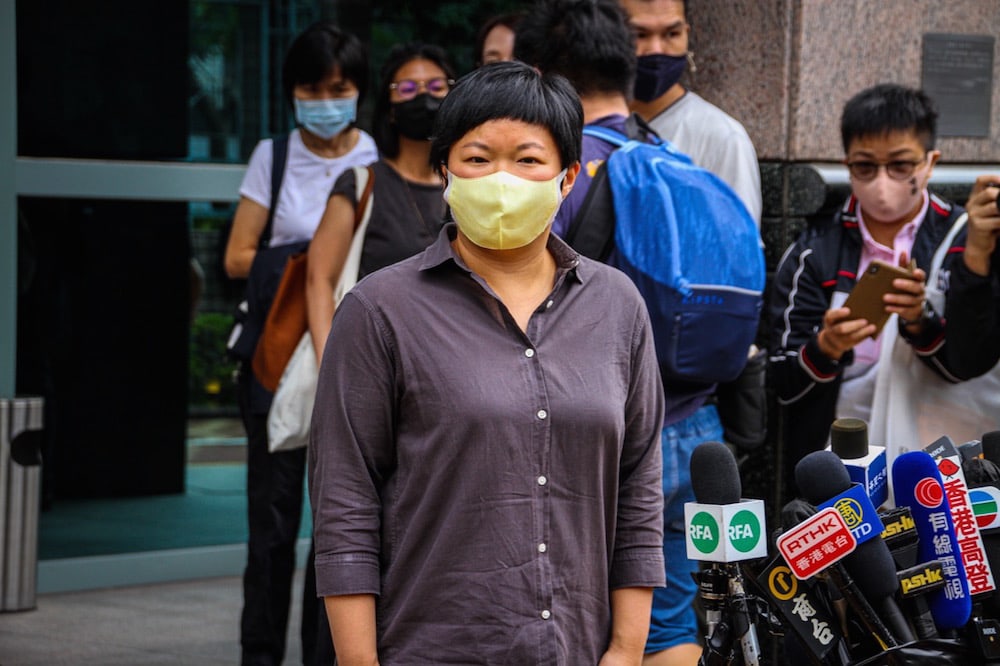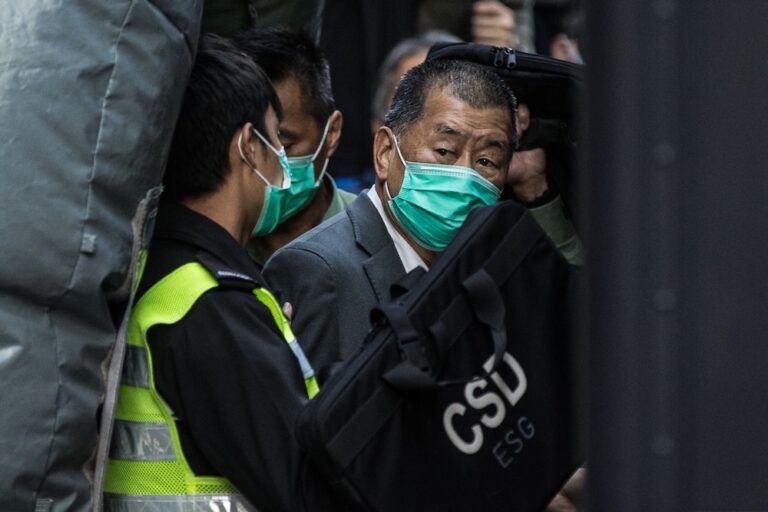In a letter sent to Hong Kong Chief Executive Carrie Lam, several media groups urge the government to open up searches of information. This was prompted by the filing of a case against RTHK producer Bao Choy who was charged after accessing a government vehicle database for an investigative report.
This statement was originally published on HKJA’s Facebook page on 16 November 2020.
Open letter from Hong Kong Press Unions and Associations to call for a meeting with CE to open up searches for information
Dear Chief Executive Mrs Carrie Lam,
Bao Choy, a producer of the RTHK Hong Kong Connection programme, Who Owns the Truth, is facing charges of making false statements when conducting vehicle registration searches. The incident has aroused deep concern among journalists. They fear that their efforts in seeking the truth may end up landing them in jail. We noted that you have said publicly you will uphold press freedom, and respect the work of journalists. The Government has also stressed the importance of the free flow of information. It has been a common, long-standing practice for journalists to conduct searches for information relating to vehicles, companies, land and marriages in the relevant departments. That reporters are allowed to do so shows Hong Kong is an open society with free flow of information, press freedom and it respects people’s right to know. Moreover, the search arrangements for certain information accessible to the public saw more restrictions imposed by the relevant government departments in recent months, citing concerns about abuse. In the Transport Department’s car search application form, conducting journalistic activities is not one of the purposes stipulated. This has put journalists doing car plate searches vulnerable to legal risk. That is why the media profession feels grave concern and is bewildered by the case of Bao Choy.
Getting to the bottom of truth is the duty of journalists. Searches for information by journalists have succeeded in unveiling reports about illegal structures of government officials and election fraud, in which there was great public interest. Such practice is also an important way for the media to play their role of the Fourth Power in monitoring society. We have rarely heard about cases of abuse by journalists in their searches.
In 2003, the Transport Department changed the application form for a car plate search, stating that such a search can only be used for matters relating to traffic and transport. Making a false statement is an offence. In 2011, the Transport and Housing Bureau published a consultation paper, suggesting a tightening of the procedures for a car licence search. In late 2012, the Government proposed an amendment of the Companies Ordinance to put restrictions on the search for the identity card number and the residential address of company directors. It drew strong reaction from the media. The proposal was shelved. In 2016, the Companies Registry made a new demand for applicants for company searches to provide a purpose for their search. Last year, the Immigration Department made a new requirement for applicants for the search of birth and marriage certificates to get authorisation from the persons involved or for an approval from immigration officers. The list of events relating to the information search shows various government departments have moved towards tightening the rules of the search, not making it more convenient for journalists doing their work.
In October last year, the Junior Police Officers’ Association sought a judicial review to demand a ban on the public check of voter registers. The Appeal Court has ruled individuals’ rights cannot be protected if there are no restrictions on the access to voter registers. But the court has at the same time affirmed the media’s role in uncovering unlawful practices such as vote-rigging through checking voter registers. Giving the right of access to the media helps demonstrate its important role in monitoring the election to ensure its fairness. The court has therefore ruled members of the press are being exempted from the ban; they are given access to check the registers of the District Council and Legislative Council elections.
The Personal Data (Privacy) Ordinance contains clear provisions governing the abuse of personal data. Section 61 provides an exemption for any news activity that can be proven and is in line with public interest. The use of personal data for news gathering will not be subjected to the relevant restrictions under the ordinance.
The privacy ordinance and the ruling over voter registers have affirmed the media’s role in seeking truth and defending public interest through monitoring. The Government should not set up roadblocks for reporters in doing searches for information. Doing so will impede journalists’ investigative reporting and cripple their role of monitoring. The case of the arrest of Ms Choy has already created a chilling effect in the media. Journalists fear they may be jailed for merely doing their work of investigative journalism.
We put forward three demands:
First, the Government must honour their pledge of upholding press freedom, respecting the right of reporting, promoting free access of information and protecting the public’s right to know.
Secondly, the Government should order departments to open up searches of information. The media should be allowed to apply for a search on the grounds of news gathering.
Thirdly, the prosecution of Bao Choy does not conform with the public interest. The charges against her should be dropped.
We sincerely hope Mrs Lam will meet with us for us to express our views and find ways to allay the media’s concerns.
Hong Kong Journalists Association
Hong Kong Press Photographers Association
Citizen News Staff Union
Independent Commentators Association
Journalism Educators for Press Freedom
Ming Pao Staff Association
Next Media Trade Union
RTHK Programme Staff Union
16 November 2020



